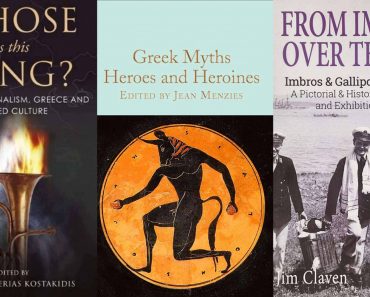
The inauguration of the state-of-the-art Thessaloniki metro system a few days ago was a true milestone for Greece’s public transportation. However, one of the most unique and spectacular elements of this new underground train system in Greece’s second largest city is the Venizelou Station.
Thessaloniki’s Venizelou metro station was literally transformed into the world’s first underground metro-archaeological museum because of the sheer amount of archaeological discoveries that were made during the construction of this €3.5 billion metro. The museum will provide travelers with a one-of-a-kind experience of quite literally traveling through time during their everyday commute.
The turbulent story of the Thessaloniki metro and Venizelou station
The station, which opened along with the rest of the new system on November 30, 2024, features an exceptional in situ exhibit of the old Decumanus Maximus, Thessaloniki’s principal Roman street. This spectacular marble-paved and column-lined road was later used as a Byzantine marketplace.
The findings remain precisely as discovered, resulting in an unprecedented open archaeological site within a functioning metro station. This unique feature is what makes the Venizelou station one of its kind.
Because of the volume of archaeological discoveries, many thought that its construction would be impossible. However, the impossible was achieved, creating an outstanding station like no other in Europe or beyond.

To protect the archaeological artifacts, engineers had to completely reconstruct the station, sinking the metro tubes to deeper depths ranging from 14 to 31 meters below ground level.
This engineering accomplishment allows current commuters to experience the history of Thessaloniki in its authentic setting, rather than looking at artifacts behind glass cases.
The construction of the Venizelou station along with the overall construction of the Thessaloniki metro encountered numerous problems throughout the years. Many people gave the Venizelou station the nickname “Byzantine Pompeii,” referring to the great condition in which the artifacts were discovered.
A fierce public discussion erupted between the construction company, which initially proposed relocating the artifacts to an existing museum and the City Council of Thessaloniki. The local authorities argued that the city wanted to keep the artifacts in their original location and create an in situ museum.
The argument reached Greece’s Council of State, which is the highest court in the country, eventually leading to the current design that smoothly mixes ancient heritage with the modern elements of Thessaloniki’s metro system.

Why is the Venizelou station unique
During its inauguration, Prime Minister Kyriakos Mitsotakis emphasized the dual role of the Venizelou station, stating, “This is not just a public project […] it is also a museum.”
Venizelou station is part of a wider archaeological story that encompasses Thessaloniki’s entire metro system, with over 300,000 artifacts uncovered during its construction. The artifacts span the long history of Thessaloniki. They include the Hellenistic, Roman, Byzantine, Ottoman and modern times of the city.
Aside from its cultural value, Venizelou station shows the world how modern communities can maintain their archaeological history while also providing critical infrastructure that addresses the needs of the 21st century.
This revolutionary approach to urban transit that combines an in situ museum along with a metro station is a design that has transformed what could have been an otherwise standard metro station into a living museum.
The preservation of the ancient history of Thessaloniki, complete with its original shops and urban elements of the Decumanus Maximus, gives us an unparalleled glimpse into Thessaloniki’s rich past as a hub of civilizations and conquerors.






